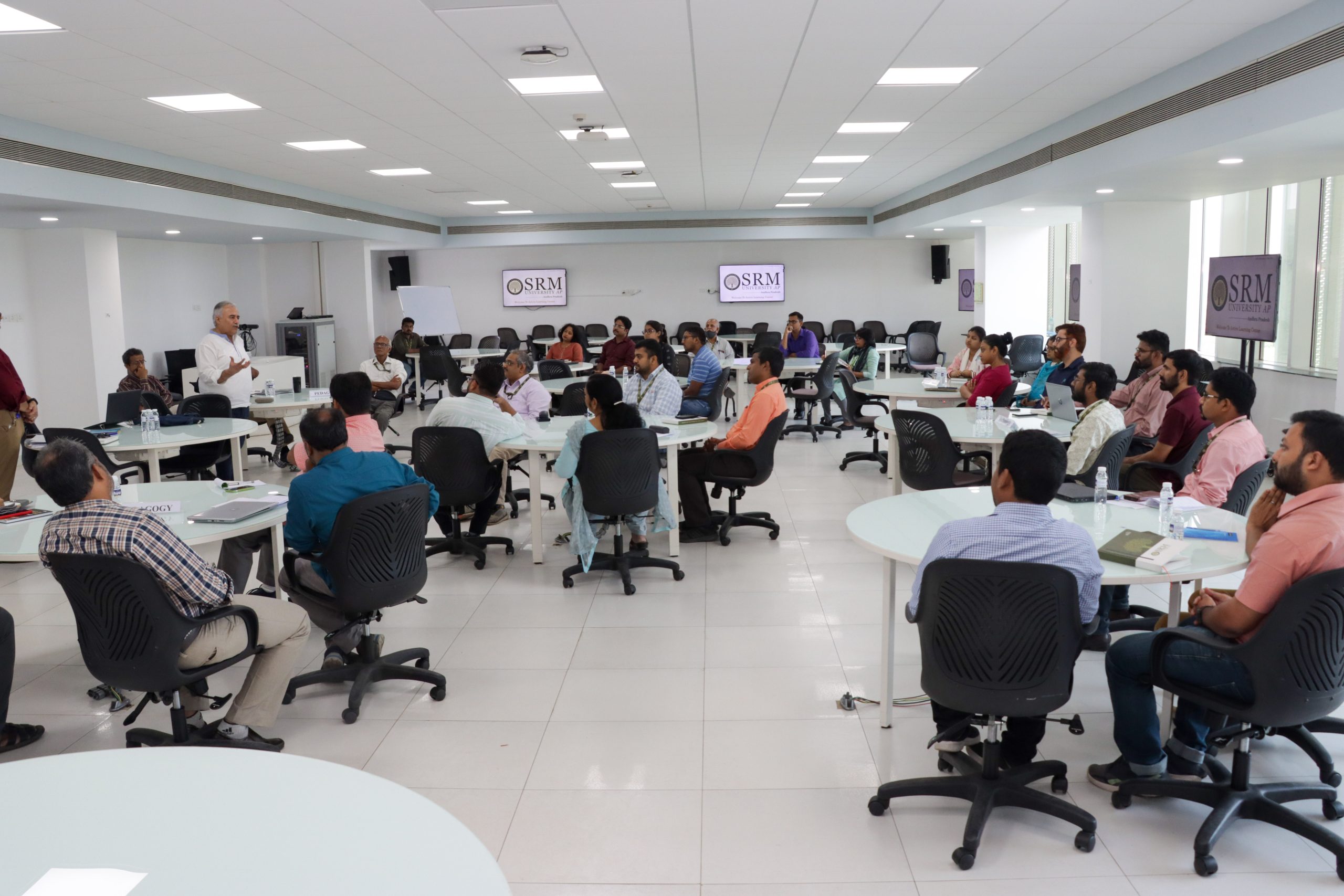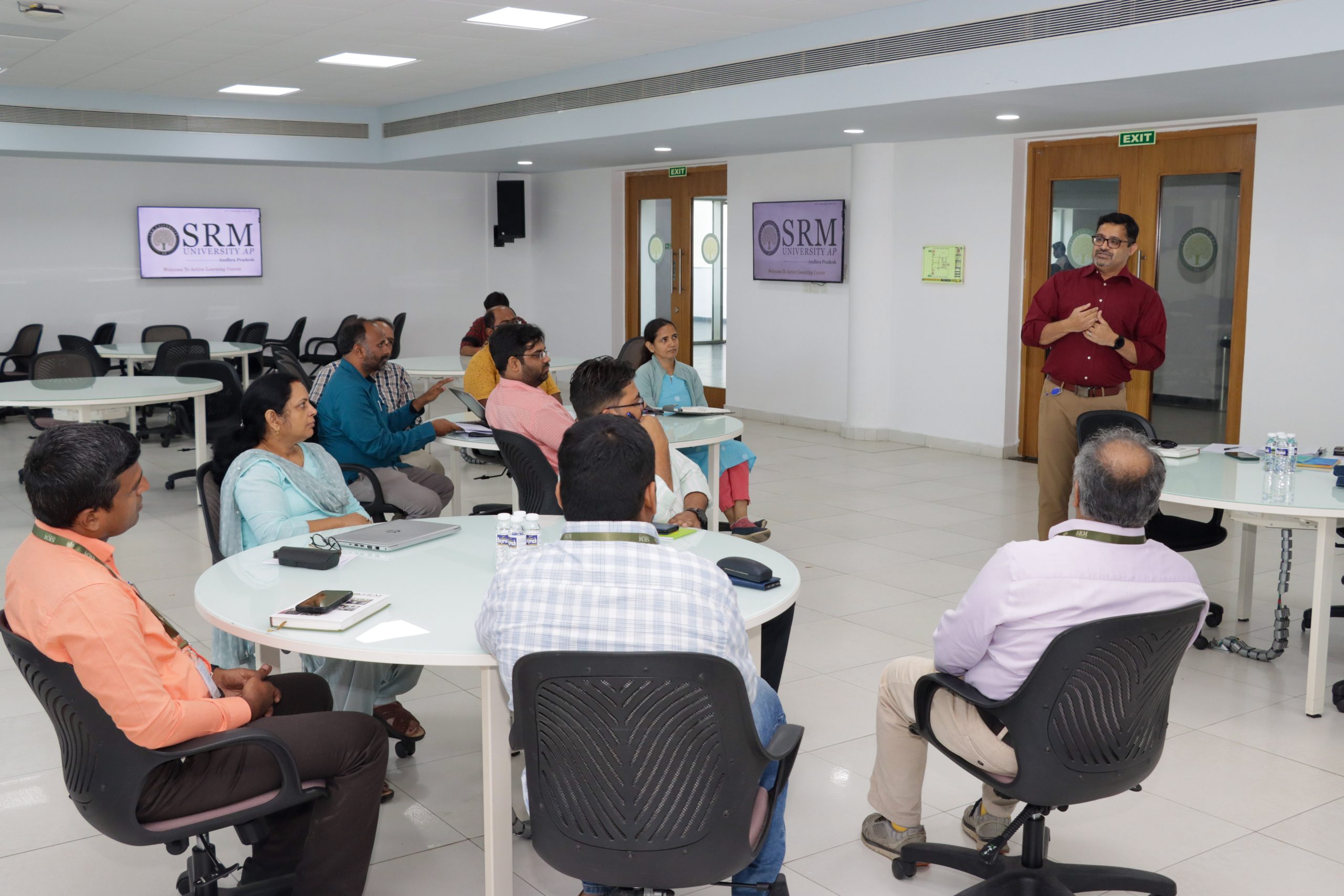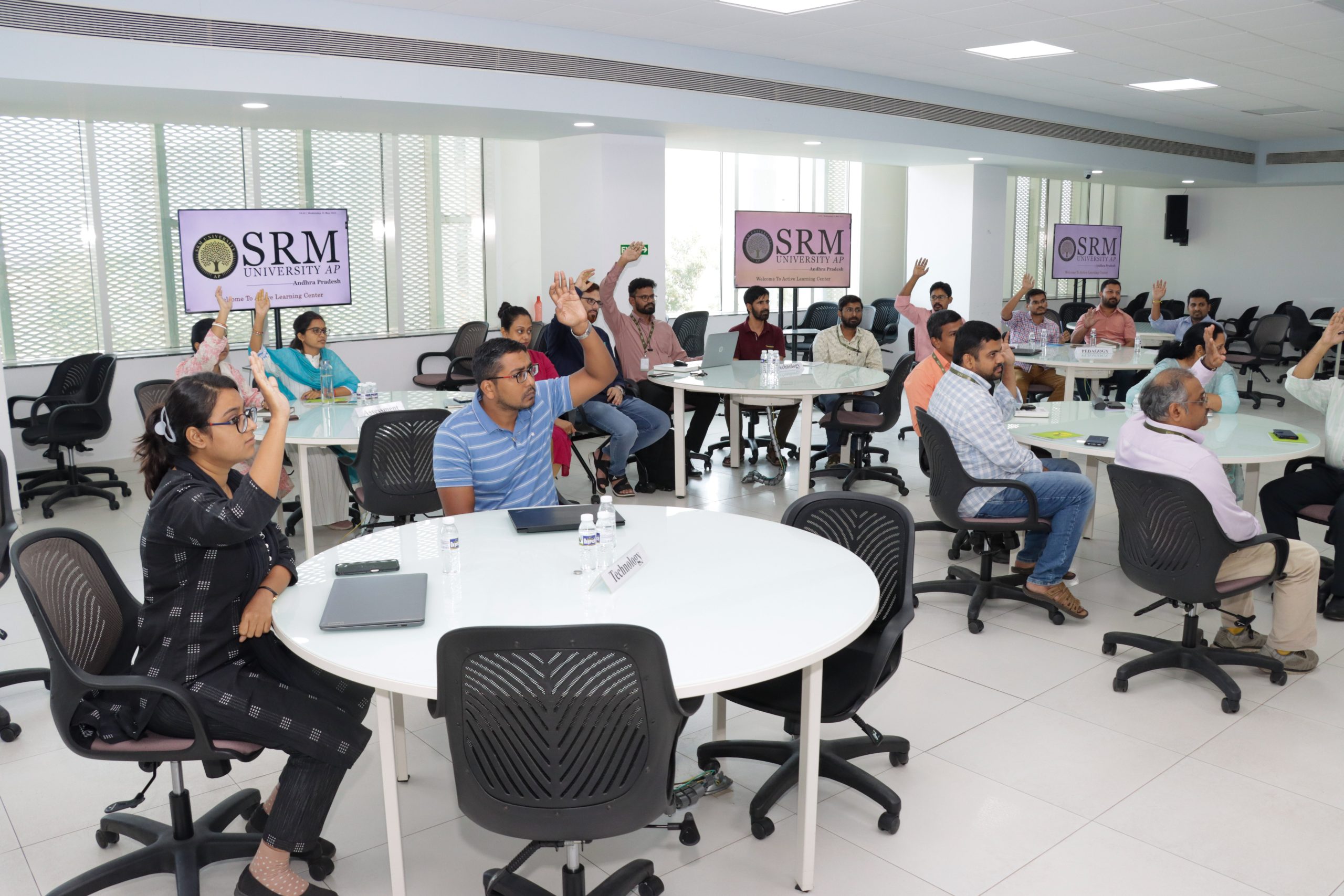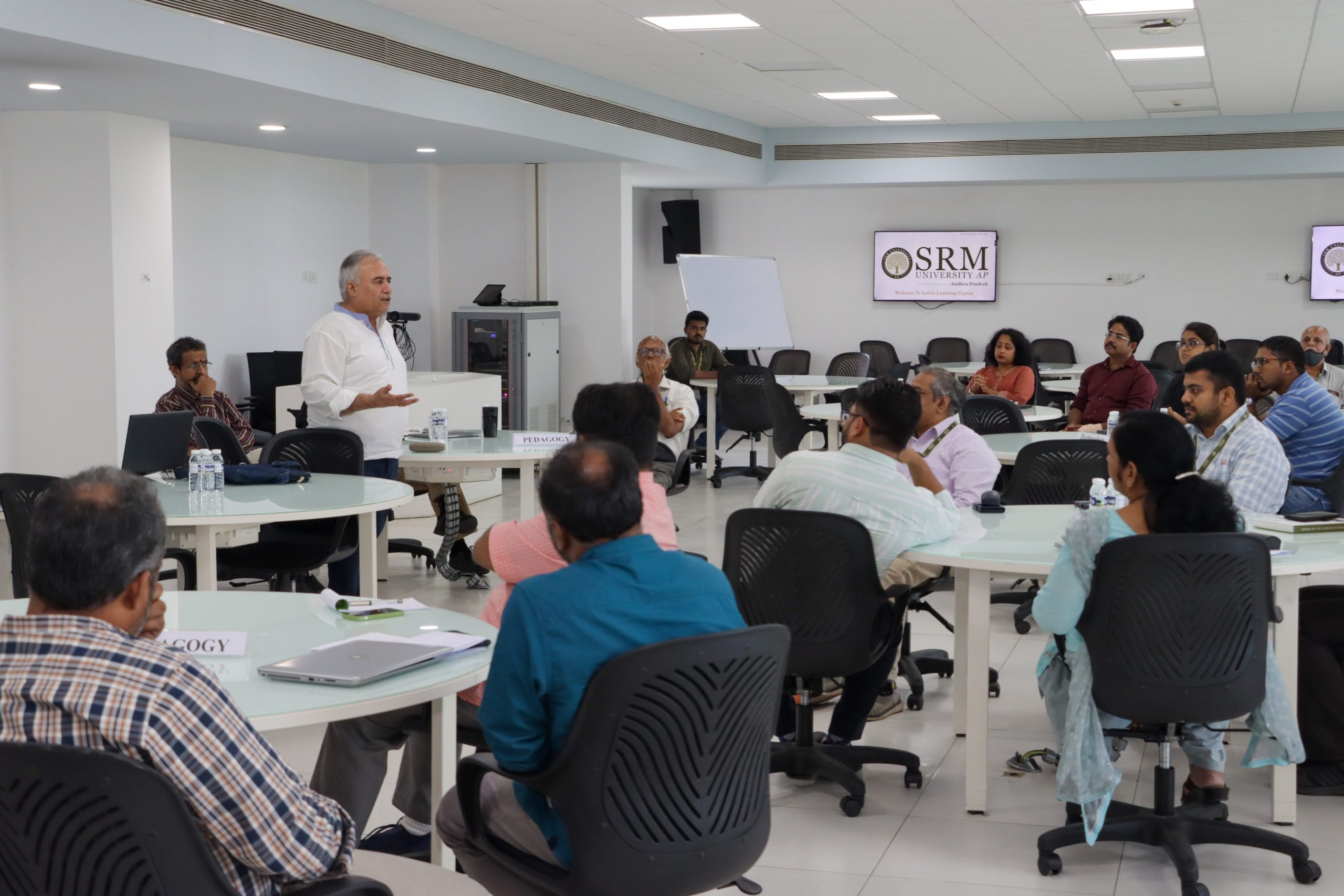Enhancing Teaching Practices with Prof. Conrad
 The Teaching Learning Centre successfully conducted a two-day workshop on Project-Based Learning (PBL). The workshop, designed to equip educators with innovative teaching methodologies, brought together 64 faculty members from various disciplines to explore the transformative potential of PBL in higher education.
The Teaching Learning Centre successfully conducted a two-day workshop on Project-Based Learning (PBL). The workshop, designed to equip educators with innovative teaching methodologies, brought together 64 faculty members from various disciplines to explore the transformative potential of PBL in higher education.
The workshop was led by Prof. James M. Conrad, a distinguished academic from the University of North Carolina at Charlotte, USA Prof. Conrad, who serves as the Associate Chair of Undergraduate Programs in the Department of Electrical and Computer Engineering, shared his extensive expertise in Computer Engineering, Embedded Systems, and Robotics. His sessions provided a comprehensive understanding of how PBL can foster critical thinking, collaboration, and real-world problem-solving skills among students.
The event began with an introduction to the core principles of PBL, emphasising its alignment with curriculum objectives and its role in creating meaningful, student-centered learning experiences. Participants engaged in interactive sessions that included hands-on activities and group discussions. These activities were designed to help faculty design effective PBL frameworks, manage group dynamics, and assess student progress through formative and summative evaluation methods.
A key highlight of the workshop was the integration of technology and collaborative tools into the PBL process. Faculty members explored various platforms that enhance student engagement and project outcomes, making PBL adaptable to diverse academic disciplines. Practical exercises provided participants with actionable strategies to implement PBL in their classrooms.
By the end of the workshop, participants expressed their enthusiasm and confidence in adopting PBL methodologies. The faculty gained valuable insights into fostering an interactive and innovative learning environment that prepares students for real-world challenges. The workshop was widely appreciated for its practical approach and the relevance of its content to modern educational needs.
- Published in News, Teaching Learning Centre, TLC
TLC Facilitates Workshop for PhD Scholars
 The Teaching Learning Centre conducted a one-day workshop on innovative teaching methods, designed exclusively for PhD Scholars. The event saw the participation of 40 scholars from various departments who sought to enhance their teaching and research capabilities through advanced pedagogical techniques.
The Teaching Learning Centre conducted a one-day workshop on innovative teaching methods, designed exclusively for PhD Scholars. The event saw the participation of 40 scholars from various departments who sought to enhance their teaching and research capabilities through advanced pedagogical techniques.
The workshop was led by Prof. James M Conrad, a renowned academic and expert in embedded systems, robotics, and modern teaching methodologies. With his extensive academic experience and leadership roles, including contributions to IEEE, Prof. Conrad brought a global perspective to the session. He guided the participants through strategies to foster student engagement, manage diverse learning needs, and incorporate innovative approaches into classroom and laboratory settings.
The workshop focused on equipping scholars with practical skills to create engaging and inclusive learning environments. Participants explored the use of digital platforms and modern educational technologies to enhance teaching effectiveness and improve student outcomes. Interactive discussions and hands-on activities encouraged scholars to exchange ideas, collaborate, and develop tailored teaching strategies that meet the needs of diverse learners.
By the end of the session, the scholars gained confidence in applying innovative, student-centered methodologies. They felt empowered to contribute significantly to the quality of education and learning outcomes at their respective institutions. This training not only prepared them for their roles as Teaching Assistants (TAs) but also equipped them with the tools to excel as future educators and researchers.
The workshop exemplifies SRM AP’s commitment to fostering excellence in education through innovative training programmes. It highlighted the university’s dedication to preparing scholars for the evolving challenges of academia, ensuring they are equipped to create impactful learning experiences.





- Published in News, Teaching Learning Centre, TLC
Faculty Training Programme: Enhancing Teaching Excellence
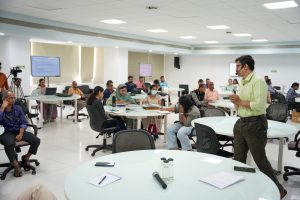 The Teaching Learning Centre(TLC) at SRM University-AP organised a two-day Faculty Training Programme on Teaching Methodologies & Pedagogies. The Faculty training Programme saw resource person Prof. Prasad Edamana from IIT, Madras delivering the session.Vice Chancellor Prof. Manoj K Arora; Associate Director, Dr S Mannathan; Assistant Professor and Co-ordinator, Dr Subeesh N P from the Teaching Learning Centre along with Faculties representing various Departments took part in the session.
The Teaching Learning Centre(TLC) at SRM University-AP organised a two-day Faculty Training Programme on Teaching Methodologies & Pedagogies. The Faculty training Programme saw resource person Prof. Prasad Edamana from IIT, Madras delivering the session.Vice Chancellor Prof. Manoj K Arora; Associate Director, Dr S Mannathan; Assistant Professor and Co-ordinator, Dr Subeesh N P from the Teaching Learning Centre along with Faculties representing various Departments took part in the session.
In his inaugural address Vice Chancellor Prof. Manoj K. Arora stressed on the essential connection between research and teaching within our academic framework. He stated – “Research and teaching cannot be two different verticals, the two should seamlessly intertwine to enhance educational experiences.”
He highlighted the need for the educators to be well-versed in their subject matter in order to improve effectiveness in teaching. He encouraged the teaching community at SRM AP to unite in this endeavour, taking a pledge to collaborate closely with him in order to build an institute of unmatched excellence
Prof. Arora detailed three crucial initiatives aimed at elevating the varsity as a paramount centre for knowledge that fosters the face of a brighter tomorrow : implementing a robust feedback mechanism, establishing a mentor-mentee programme, and promoting familiarity with academic programmes and regulations. He supported his points with case studies that illustrated the benefits of faculty engagement in these areas.
Prof. Prasad facilitated workshops on active learning techniques, including flipped classrooms, problem-based learning, and experiential teaching methods. Faculty members also participated in group activities, where they demonstrated their teaching methods and received detailed feedback from their peers and the resource person.
A significant highlight was the focus on aligning learning outcomes with innovative teaching practices. The participants explored strategies to make classrooms more engaging and inclusive, leveraging technology to enhance both teaching and student interaction.
The training programme concluded with a feedback session where participants shared their takeaways and suggestions for future workshops.
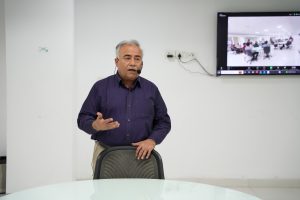
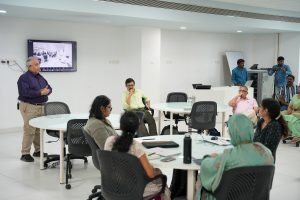
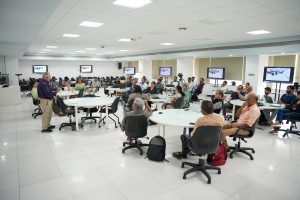
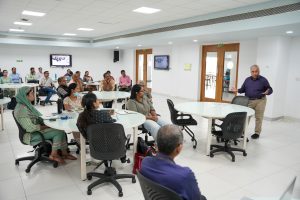
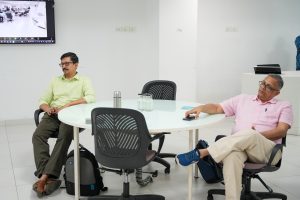
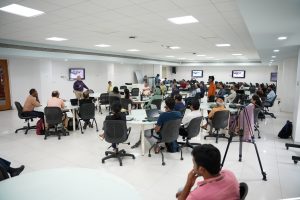
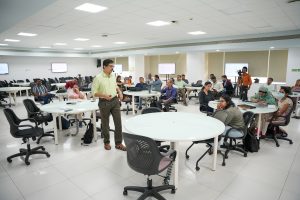
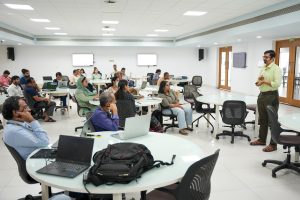
- Published in News, Teaching Learning Centre, TLC
Innovating the Art of Teaching Through Gamification & Game-Based Learning (GBL)
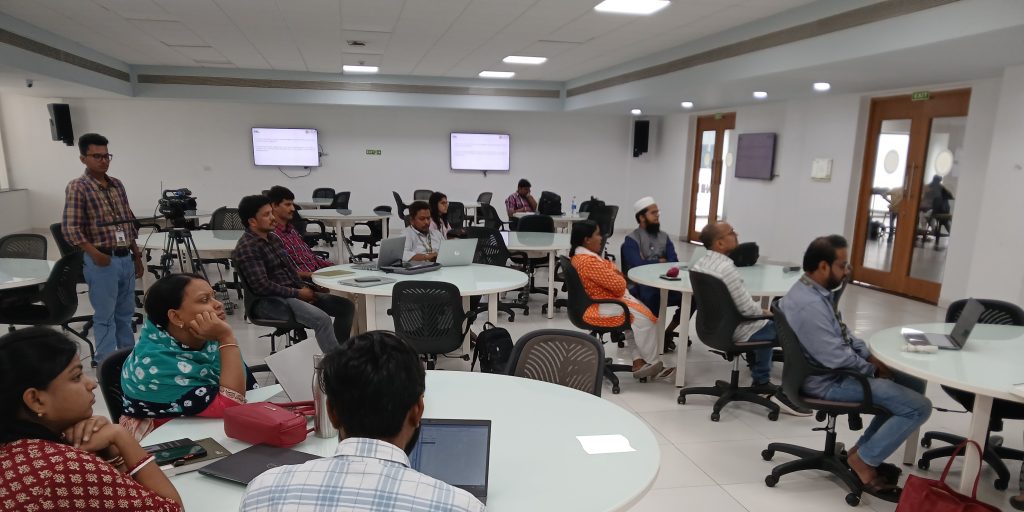
In alignment with the university’s goal to enhance academic excellence, innovation in teaching-learning methods that transgress from non-traditional approaches has taken pivotal importance in academia. To facilitate enhanced and experiential learning experiences for students, the Teaching Learning Centre organised a workshop on “Gamification and Game-based Learning (GBL) in University Education” on November 13, 2024, led by Dr Sunil Chinnadurai, Assistant Professor, Department of Electronics and Communication Engineering. The workshop explored the benefits, challenges, and practical strategies for incorporating Gamification and GBL methods in university-level courses.
The session opened with a discussion on the difference between gamification and game-based learning, two concepts that share similar principles but serve different functions. Gamification, Dr Chinnadurai explained, involves including game-like elements, such as points, badges, and reward systems, in traditional classroom activities. Using these, instructors can transform routine tasks into interactive, motivational experiences for students. Game-based learning, however, takes the concept further by using games as teaching tools. Through this method, students learn by actively engaging in activities that relate to the course matter.
Throughout the workshop, instructors explored how these methods could significantly benefit students. Gamification and GBL have been shown to increase student engagement and actively involve them in learning. This method promotes knowledge skills, boosts creativity, strengthens problem-solving skills, and encourages active participation in the classroom.
The workshop also discussed the practical challenges instructors might face when incorporating GBL and gamification into their courses. Technical issues, student resistance to non-traditional learning methods, and the additional time required for planning were highlighted as common problems. Dr Chinnadurai emphasised the importance of aligning game-based activities with course objectives. Clear rules, along with timely feedback, are essential for creating effective and engaging learning experiences that also meet academic standards.
To provide participants with hands-on experience, the workshop introduced interactive tools such as Kahoot! and Mentimeter, which act as platforms for creating quizzes, polls, and other gamified content. These tools also introduced us to the potential of scenario-based learning.
The workshop highlighted the value of adopting new teaching methodologies in academic pedagogies. As instructors look to enhance their students’ learning experiences, gamification and game-based learning provide promising avenues for making education both rigorous and enjoyable.
- Published in Departmental News, News, Teaching Learning Centre, Workshop
A Discourse on Teaching Practices
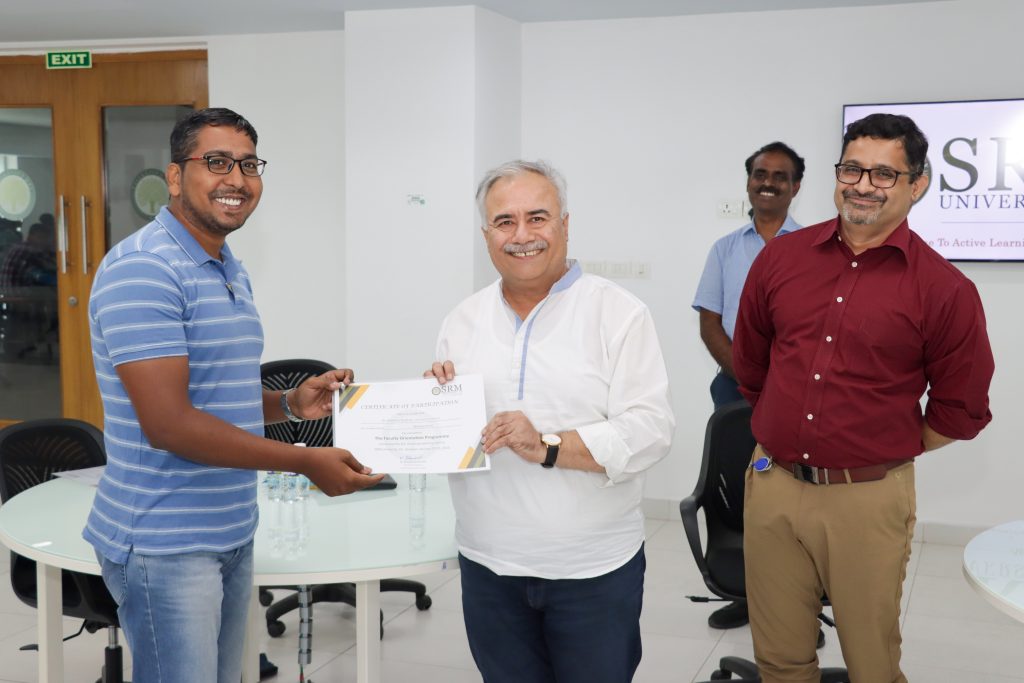
The Teaching Learning Centre at SRM University- AP enables the faculty and researchers to create a conducive environment for teaching and learning. The centre had organised a Teaching Process-Round Table Programme on May 31, 2023 for the faculty to discuss their best teaching practices and strategies in facilitating the students with a better experience.
Vice Chancellor, Prof. Manoj K Arora, Deans, Professors and other faculty members were in attendance. Prof. Arora, emphasised on the necessity of such interactive programmes. He called it a “360° feedback session from you, for you.” The programme also examined the ideas from the Faculty Development Programme conducted in January this year.
Practices like, Experiential learning, Active learning and Peer learning were the highlights of the session. Audio-Visual techniques, storytelling, case studies, Jigsaw technique and technology based learning were stressed upon to make the classes more engaging.
The session ended with Vice Chancellor, Prof. Manoj K Arora handing over certificates to the presenters.
- Published in Departmental News, News, Teaching Learning Centre, TLC








